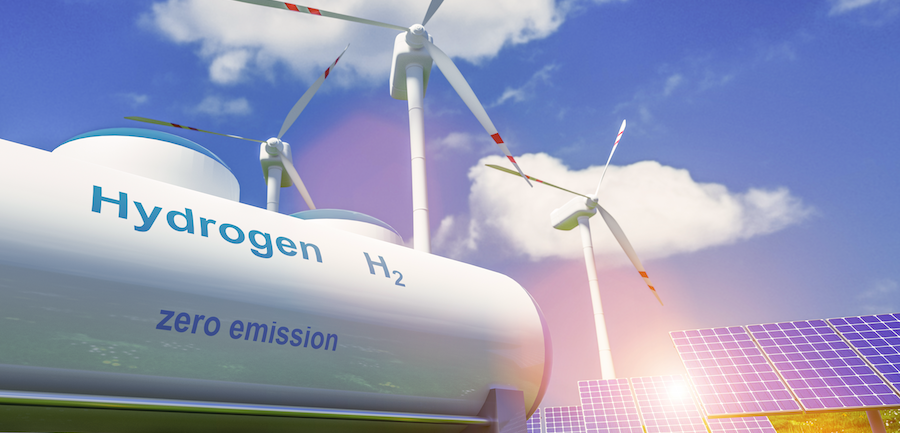
Hydrogen power could be an effective way for the UK to achieve net-zero, but it will take a large amount of funding. How will we do it? Let’s find out more.
We talk a lot about renewable energy sources, such as wind, solar, and geothermal. Still, hydrogen has been largely ignored, perhaps because of the cost involved in hydrogen production. That is, until now. A new UK government initiative aims to make hydrogen a substantial part of its plan to achieve net zero carbon emissions by 2050.
In this article, we’ll look at how the government plans to fund its plans for hydrogen power. We’ll also examine why hydrogen is seen as a vital part of its quest for net zero.
The plan for hydrogen investment
The UK government has a vision to make the country a global leader in hydrogen power. By 2030, it wants to have 10GW of low-carbon hydrogen production capacity with robust plans in place for future expansion of hydrogen output. The primary benefit of hydrogen for the government is helping it reach its target of hitting net zero by 2050. However, it also sees a larger hydrogen industry as a source of employment across the country.
However, hydrogen production is expensive with a colossal upfront cost – and it all has to be paid for. As a result, the government has created a framework to attract investment in the industry. The Hydrogen Investor Roadmap contains information on all available and future funding mechanisms so domestic and foreign investors can participate.
The government is also directly funding companies that want to start using hydrogen to produce power. In May 2022, it announced the 28 winners of a competition looking for the best ways to drive the UK hydrogen industry forward. These winners share a pot of around £60 million. Winners include a Yorkshire company that will build an electrolyser plant, promised to be the most affordable, sustainable hydrogen solution available. Another West Midlands company has received support to research hydrogen purification with a view to using hydrogen to power lorries.
The powers that be are heavily behind hydrogen production as a source of energy, but why?
Why hydrogen?
Hydrogen is the most abundant element in the universe – and you can generate energy from it. This should be good news, but unfortunately, extracting hydrogen gas from substances like water or natural gas is extremely hard and dependent on a large number of resources. However, if we could create a way to harness hydrogen power simply and affordably, it could be a game-changer in how the world produces energy.
Hydrogen is a clean energy source, safe and non-toxic. Unlike other energy sources, it does not harm the environment. Hydrogen production is low in pollution. It does not create carbon dioxide or other greenhouse gases. Hydrogen production is sustainable, and you can do it almost anywhere, as you can produce it from water, methane and biomass.
Moreover, hydrogen is a highly efficient source of energy, with more energy per pound of fuel than gas or diesel. A traditional power plant produces electricity at 35% efficiency. Hydrogen is capable of running at 65% efficiency. It’s no surprise that hydrogen is seen as a potential magic bullet for clean, sustainable energy.
Disadvantages of hydrogen
Of course, nothing is perfect. Hydrogen has some quite substantial drawbacks as a source of energy:
- It’s expensive to extract hydrogen from its companion substances. This is the reason why it is not (yet) used much as a power source anywhere in the world
- Hydrogen is more complex to store than other energy sources. To store, it must be compressed to a liquid and kept at a low temperature. You can only transport hydrogen in a high-pressure environment
- Like petrol, hydrogen is a volatile and flammable substance. It doesn’t have a smell, which makes any leaks harder to detect
- In some situations, you need to burn fossil fuels to extract hydrogen, which of course, has an environmental impact
- It will take a long time to reach a position where we can power the world with hydrogen, as opposed to fossil fuels which are ready to go now
The future of hydrogen
It’s clear that hydrogen is an underused resource. Currently, hydrogen is only really used in industry, such as in the production of chemicals. However, hydrogen pioneers have created hydrogen-fuelled buses and motorcycles, while catalytic combustion applications which could be used in homes and businesses have also been developed and demonstrated.
However, hydrogen has enormous potential as an energy source; clean, sustainable, abundant, low in pollution, and renewable. The only barrier is the cost of production, which the UK government (alongside others) is working hard to alleviate.
We hope that these current efforts will attract investors to the hydrogen sector and that we can all reap the rewards in years to come.
